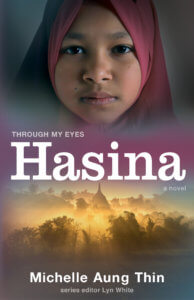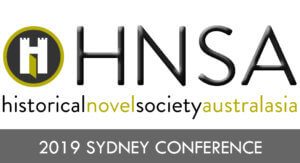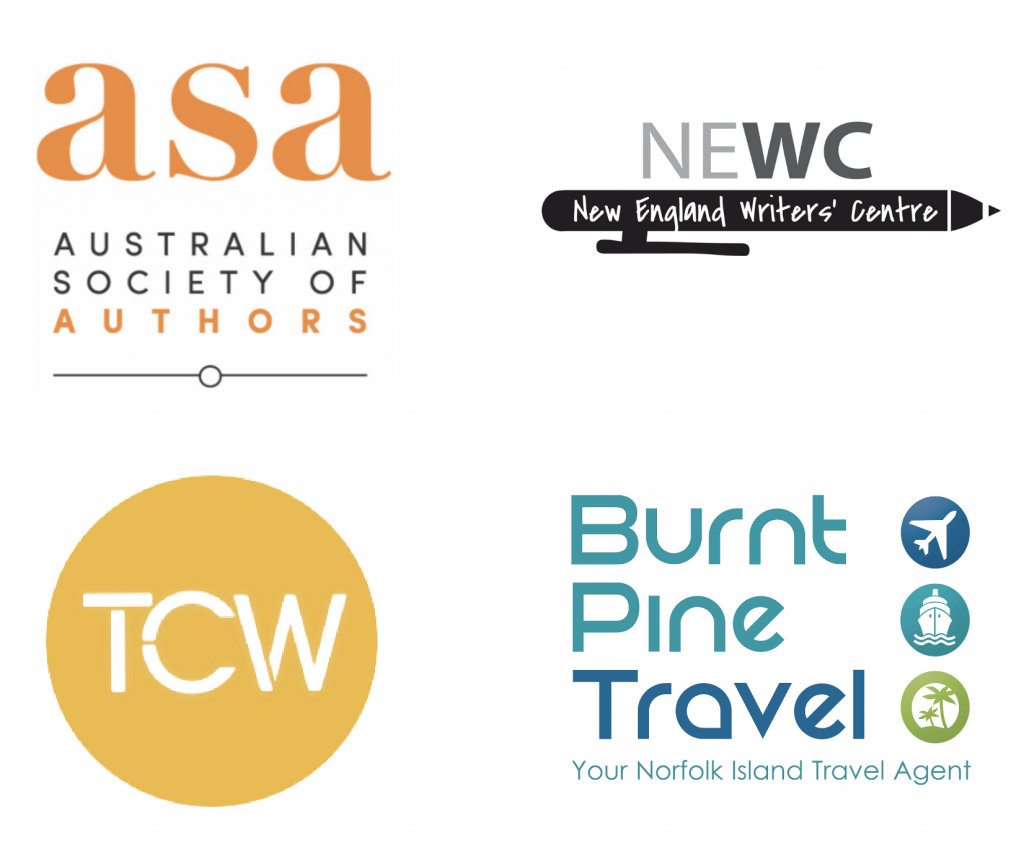Michelle Aung Thin will be a member of the panel Learning from History: subtexts in historical novels at this year’s HNSA Conference on Saturday 26 October 2019. One of Michelle’s key writing interests lies in the negotiation of ‘hybrid identity’, as exemplified in her absorbing novel, The Monsoon Bride, set in 1930s Rangoon.

In an interview with SBS last year you described yourself as ‘Australo-Anglo-Canadiano-Burmeseo’. Is this a case of fulfilling the old adage, ‘writing what you know’?
I am not an advocate of only writing what you know. In fact, in last year’s ABC debate, I took the side of writing into what you don’t know, but always with the proviso that you don’t clamour over the voices of those typically overlooked or unheard. That you are aware of what you’re doing when you write a point of view very different to you own – that you’re sensitive to the power differentials.
What I do think is important is that literary culture puts out voices and work that examines the world in new ways. That is one way a novel is novel. The writer Tim Parks puts it nicely ‒ analysing the world in a way it isn’t used to being analysed. This way of thinking about how and why we write novels is something I discuss with my fellow researchers at RMIT in the NovelLab research node. So much writing comes from a very familiar, well-trodden perspective. I am for writing into uncertainty. And that includes writing about the past. Actually, especially writing about the past. I’ve spent a lot of the past few years researching a book about cosmopolitan and mixed groups of old Rangoon and so much of that history is not evident in the archive – you have to read between the lines to find it.
In your intensely atmospheric novel, The Monsoon Bride, Rangoon is effectively another character. Can you share with us your thoughts about the importance of setting in historical fiction?
People and their actions are always tied to places, whether these are types of places – offices or the domestic space for example – or actual locations, like the Abbotsford Convent here in Melbourne, where I write this. Place is always perceived by someone and so, a setting is also an aspect of character. For me, it all comes together in a tangle – the person, their setting and the knotty, life-based thing that makes me wonder and so, makes me write.

You undertook your PhD in Creative Writing at the University of Adelaide under the mentorship of Brian Castro. Would you recommend academic study to aspiring writers as a means of honing their craft?
I think that academic study in creative writing is about more than honing your craft. A PhD is a research degree. You get to spend time in the world of ideas and bring that to bear on your creative process. At RMIT we offer a classic project-based PhD. We also run an alternative international PhD program called the Practice Research Symposium, or PRS for short. It is for mid-career and established writers who want to shift their work in some way. Their practice is the research and we meet every six months over an extended weekend so that the students can present where they are with their writing and their thinking about writing to a panel of creative practice academics. It’s an incredibly generative program where writers work not only with supervisors, but also with a tightly knit cohort. The PRS is currently only international (but that could change!). We meet in Ho Chi Minh City and many of the themes that come up are those I find most fascinating – cosmopolitanism, hybridity, the ways in which colonialism continues to impinge upon southeast Asian culture and identity.
You were the first Asialink resident to Myanmar in 2014 (funded by Arts Victoria). Do you have any advice for writers considering applying for funding to undertake research overseas? What was your favourite research trip, and why?
I think that the Asialink trip was my favourite research trip to date. It was hard and intense and I was on high alert the whole time. But, it was an amazing experience to be there after the first moment of liberalization but before the election in 2015. I am still writing about that time.

You count a Dutch pirate among your ancestors. Sounds like an irresistible topic for a future novel… What’s next for you?
Ha ha! Yes, old Van Dokem. He was a sailor who lost his ship and unable to return to Holland, took up piracy with others among his crew and in collusion with the local people – or so the story goes.
Next for me – I’ve just finished a commission for Allen & Unwin about the Rohingya genocide called Hasina. That is coming out on 9 September.
Now I am back to the book I began on the Asialink trip mentioned earlier. It’s about Rangoon, city of my birth, when it was a cosmopolitan, colonial port city and threaded through that is my first experience of returning there. The book examines Yangon, Myanmar’s major city, on the cusp of democracy, and colonial Rangoon prior to Japanese occupation. The contemporary story is told through the lens of an exile returning to the place of her birth (ie me – I was born in Burma in the year of the coup and left with my parents soon afterwards. I returned for the first time in 2013 and then, for a longer period in 2014). The historical narrative follows, among others, a photographer known as K, a Japanese national who has made Rangoon his home but must now choose where his loyalties lie. I am Anglo-Burmese, of mixed-race and longed for the Rangoon of my family’s past, a sticky, cross-cultural web of religion, ethnicity, sexual orientation and affiliation. I spent some time at the National Library in the Luce Collection researching the book and you can listen to a podcast called Love Loss and the Last Days of Rangoon – about the experience here.

Sharon Barba majored in ancient history at the University of Western Australia and combines her love of history with travelling to exotic destinations featuring fabulous food, wine, shopping… and the occasional donkey. Her current work in progress is an historical series about the Gracchi, the Kennedy brothers of Republican Rome. For more information visit: https://www.sharonbarba.com/

Once again, historical fiction writers and readers can gather for a three stream program on the weekend of 26-27 October including our extended Academic stream on Sunday 27 October. This time there’s also a Craft & Publishing program on Friday 25 October with craft workshops, masterclasses and manuscript assessments with top class tutors. Our Guest of Honour is Jackie French. Keynote speaker Paula Morris will address our theme: History Repeats.
Among the 60 acclaimed speakers are patrons Kate Forsyth and Sophie Masson, Catherine Jinks, Ali Alizadeh, Lucy Treloar, Pamela Hart, Nicole Alexander, Jane Caro, Alison Goodman, Kelly Gardiner, Michelle Aung Thin, Meg Keneally, Majella Cullinane and so many more.
Enjoy a delicious meal at our conference dinner on Saturday 26 October where Anna Campbell will entertain us. You’ll also hear who’s won this year’s ARA HNSA Short Story Contest with a $500 prize, and the HNSA Colleen McCullough Residency.
- Visit our website to purchase your tickets now!
- Subscribe to our newsletter for interviews, podcasts and conference news.
- Read our features on News & Interviews.
- Learn about our sponsorship opportunities.
- Let’s make a noise about historical fiction!




